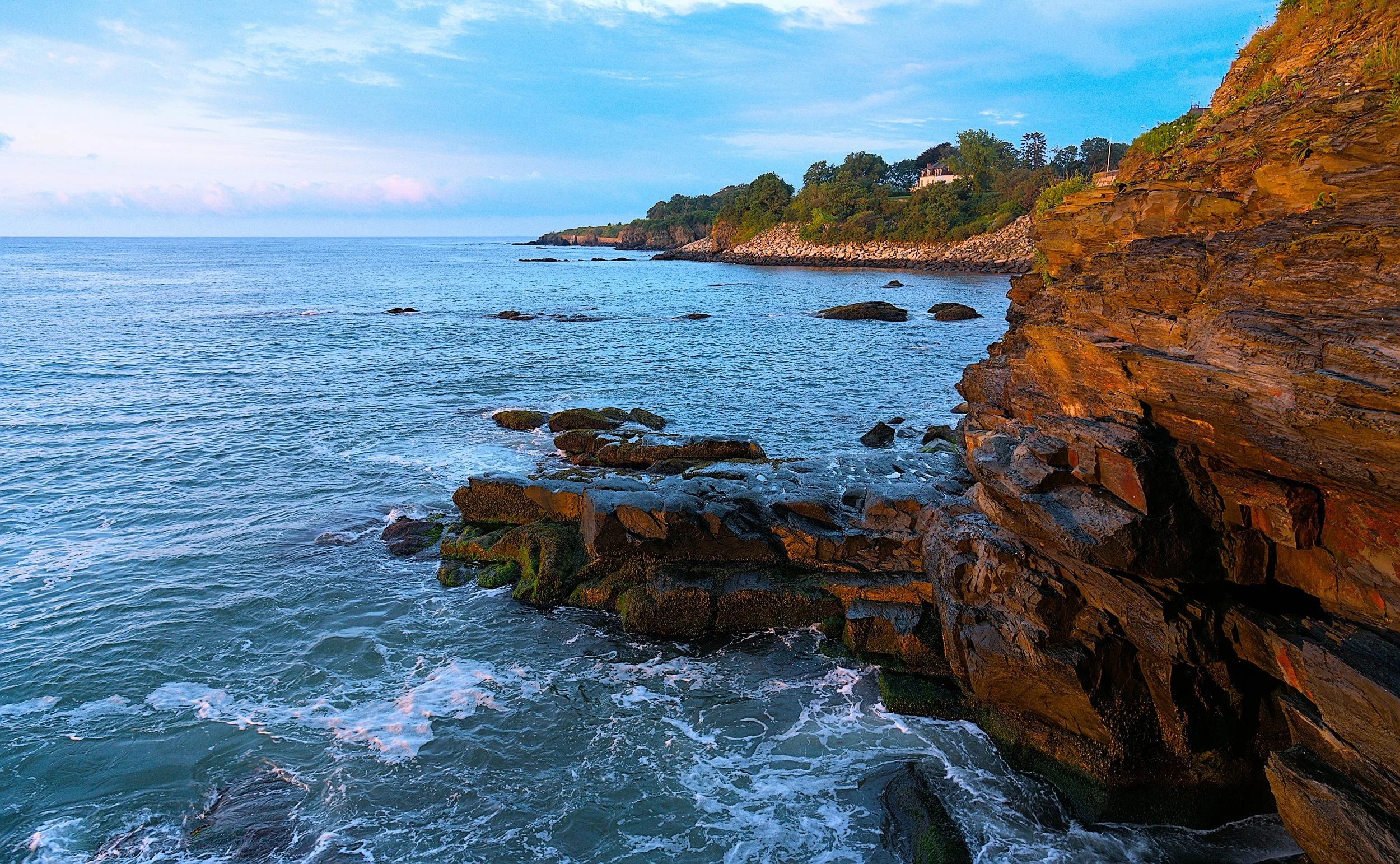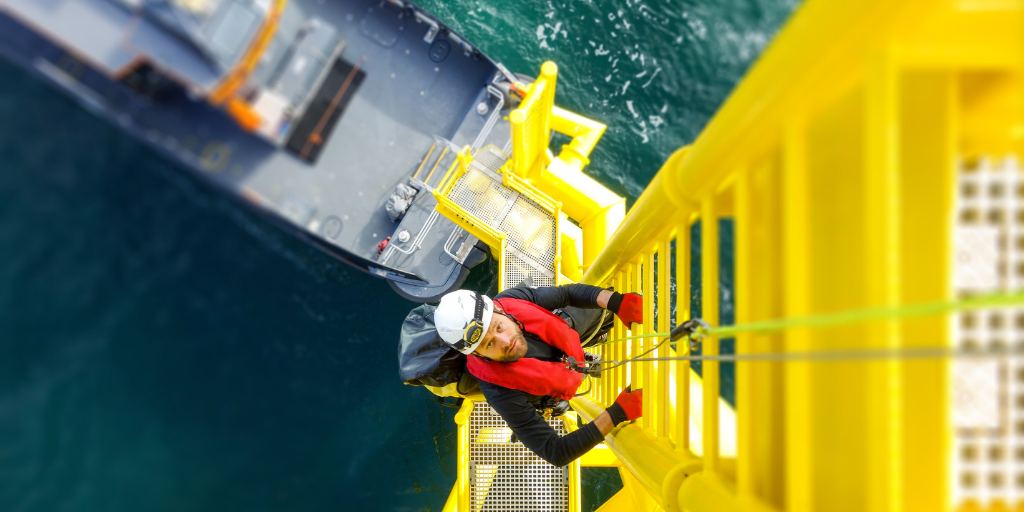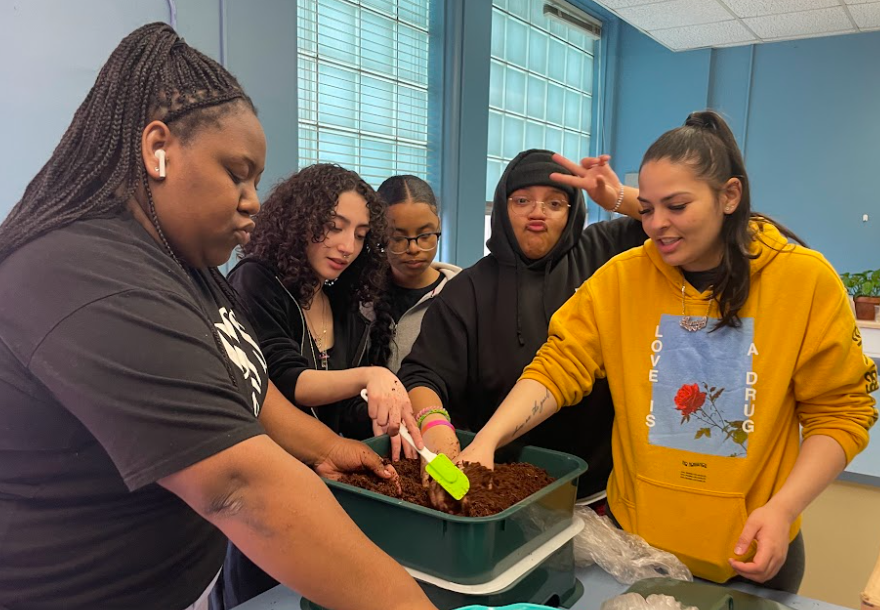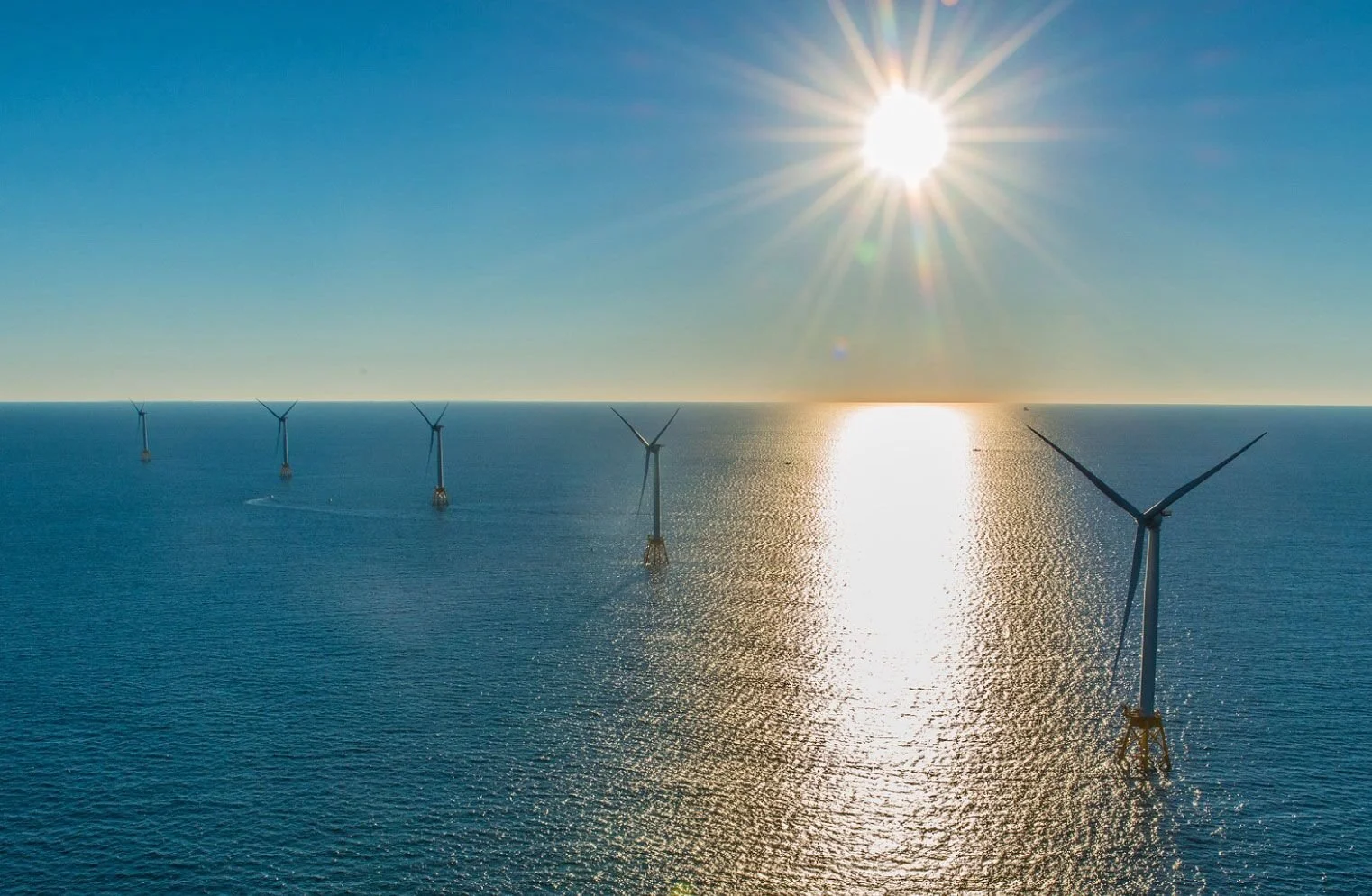Learn from our experts about topics like energy policy, environmental justice, offshore wind, community engagement, workforce training, civic engagement, and criminal justice reform.
Learn with us.

Transforming Rhode Island with the 2025 Climate Action Plan
In 2021 Rhode Island passed a law called the Act on Climate. This law requires transformations across many different parts of the economy to achieve net-zero carbon emissions by 2050 (for more on carbon emissions and decarbonization, read this blog). We can see and feel the effects of a changing climate—hotter summers, weirder weather patterns, stronger storms, and sea level rise—and every year the science is more clear that if we don’t take rapid climate action, there will be hefty consequences. These consequences will become increasingly fatal, especially in the midst of cuts to the National Weather Service, such as in the case of the floods in Texas this past month. That’s why the requirements in the Act on Climate are legally binding, and if the state doesn’t meet them they could get sued.
This blog explains what the state is doing to meet the Act on Climate requirements and why your voice is needed to ensure that these transformations revitalize our communities now and in the future. In the next few sections, we will unpack the state’s next steps and how you can get involved.

Offshore Wind: Mother Nature’s Gift to Rhode Island
Think about the last time you felt the sun on your skin or the wind on your face. Energy is all around us. It powers our homes and the places where we work and play. If you haven’t yet read our post on how the electrical grid works and why we need renewable energy, read it here.
Unfortunately, our current energy system still relies on burning fossil fuels which emits dangerous greenhouse gas pollution that compromises the health of communities, wildlife, and ecosystems and contributes to climate change (read more on that here). In 2023, Rhode Island generated 87% of its electricity from natural gas, which is largely made of the fossil fuel methane. The methane we use in Rhode Island comes primarily from the Marcellus and Utica shale regions in Pennsylvania, West Virginia, and Ohio, and extracting it poses serious environmental impacts to these communities, including flammable tap water. We need to find a way to meet our grid’s energy demand without polluting our air and water and making climate change worse in the process. That’s where offshore wind comes in.


Protect the Earth and Your Wallet Too
Rhode Island is strategizing to meet the 2021 Act on Climate’s mandate to reduce greenhouse gas emissions (a.k.a. carbon emissions) and achieve net-zero emissions by 2050. Eliminating pollution from carbon emissions, also called decarbonizing, means protecting people and the environment by divesting from fossil fuels and investing in renewable energy. There are many programs and resources available to Rhode Islanders to make the choices that are sustainable for the environment and sustainable for our wallets.

What is renewable energy and why do we need it?
It’s the end of the work day. I hop into my car, put the key in the ignition, and make my way home. When I get there, I flip on the lights to the living room, the dining room, and the kitchen. Dinner tonight is salt and pepper tofu with rice, so I plug in the air fryer and the rice cooker. I turn on my bluetooth speaker and listen to music as I wait for dinner to be ready. The appliances beep and sing to tell me that they’re done. I plate everything and plop down on the couch in front of the TV to watch the newest episode of Abbott Elementary or Bob’s Burgers.
At every step of the way, I am using electricity. What is electricity? And where does it come from?

What is decarbonization?
Earth has many cycles. Since matter cannot be created or destroyed in a closed system (this is true for the most part without getting into quantum physics!), what we have on planet Earth is what we got. So how do we take care of the resources we have? This first article in the series will talk about the carbon cycle.

2025 Community Input Report
In 2024, Roots 2Empower spoke with 220 community members over a series of seven meetings to prepare them to engage in the development of the 2025 Climate Action Strategy and understand what support they would need to do so. During these meetings, we educated participants about the causes of climate change from an environmental justice lens, provided an overview of climate action the state is taking, and gathered feedback which we published in this report.

Careers in the Clean Energy Transition
The transition to a regenerative economy will provide an abundance of well-paying jobs. This article provides an overview of jobs in six key sectors.

Fostering Environmental Justice
This booklet was created to foster conversations about environmental justice in Rhode Island in advance of the state’s development of the 2025 Climate Action Strategy. Although this history is incomplete, our goal was to provide baseline information about the extractive economy, how it started, and the ways it fuels the relationship crisis between ourselves, each other, and the Earth. This booklet is available in English, Spanish, and Portuguese.

Our Comment on Pawtucket’s Proposal to Convert Morley Field
Thank you for the opportunity to comment on the vital matter of preserving the only green space in the majority Black and brown Woodland Neighborhood of Pawtucket. Roots 2Empower is a Pawtucket-based nonprofit that works to build community power and resilience through mutual aid, community gardening, dialogues, visioning sessions, and entrepreneurial training. Despite the work that we do to enable civic engagement for justice-impacted, low-income, and marginalized residents of Rhode Island’s urban core, our impact is limited without a transparent and democratic process. Regrettably, that has been the case with the unnecessary closure of Morley Field and the application to convert part of the field into a parking lot.

Powering Energy Justice: Building a Diverse, Equitable, and Inclusive Offshore Wind Industry in Rhode Island
Roots2Empower was recently awarded a grant from SouthCoast Community Foundation for their project "Powering Energy Justice: Building a Diverse, Equitable, and Inclusive Offshore Wind Industry.” A social justice 501c(3) nonprofit based in Rhode Island’s tri-cities Pawtucket, Providence, and Central Falls, Roots2Empower’s mission is to enable civic engagement and break the cycle of poverty, incarceration, and recidivism for low-income and marginalized communities. This grant will support Roots2Empower’s work educating and engaging community members on the clean energy transition, the essential role of offshore wind energy, and how they can get involved, provide input, and access family-sustaining careers. Their first community meeting for Pawtucket residents will be from 2-4 pm at the Pawtucket Public Library in the Campbell Auditorium on February 24th.

What is Energy Justice?
Human-caused climate change is driven by burning fossil fuels like coal, oil, and gas for energy. Although we all need energy to live - and all energy comes from the Earth - the benefits and burdens of energy systems have not been distributed fairly. Energy justice seeks to change that by achieving equitable social and economic participation in our energy system while remediating the social, economic, and health burdens on marginalized communities.

Offshore Wind Energy: A Path to Equitable Development
As offshore wind becomes an increasingly prevalent component of Rhode Island’s economy, understanding the distributional impacts of these projects’ benefits and burdens is paramount. In particular, traditional environmentalist messaging boasts of how the development of renewable energy projects creates thousands of jobs and stimulates economic growth. Yet, these promises of prosperity have different implications for Black, brown, indigenous, and people of color (BIPOC), low-income, formerly incarcerated, and disadvantaged communities. With billions of dollars being funneled into upcoming offshore wind projects in Rhode Island, considerations of equity must account for marginalized communities that will be impacted by offshore wind infrastructure.

Prison to Entrepreneurship Model
Although Rhode Island’s incarceration rates per capita are half the national average, probation rates are much higher. That’s why the Prison Policy Initiative ranked Rhode Island the 10th state for mass punishment, making it the only northeast state on that list.
